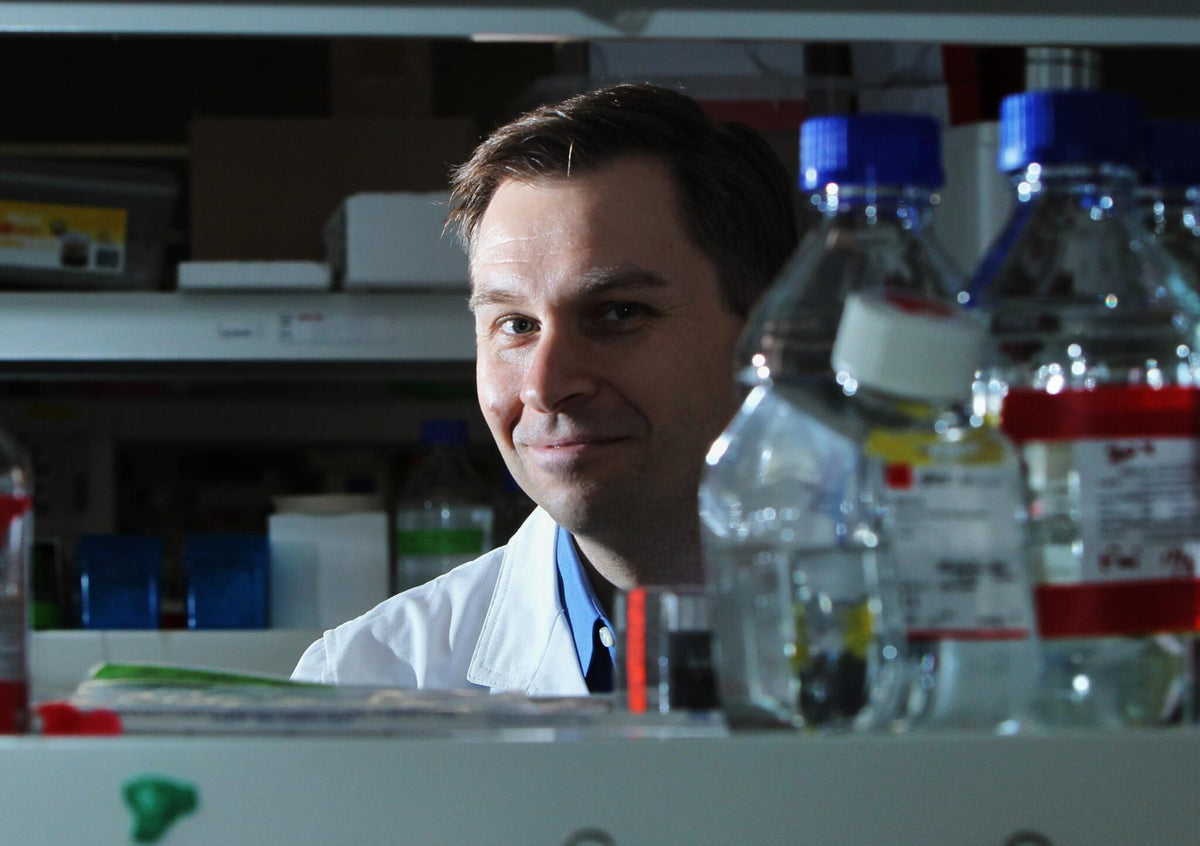
Who is David Sinclair?
|
|
Time to read 3 min

|
|
Time to read 3 min
If you’ve heard of NMN, resveratrol, or even the idea that ageing might be optional — chances are, you’ve heard of David Sinclair .
He’s one of the most influential scientists in the field of longevity, and his work has helped bring terms like NAD+ , sirtuins , and biological age into the public consciousness.
Here’s what you need to know about Sinclair’s story, his science, and how it connects to the supplements you’ll find at For Youth. Read more in this 2025 update.
David Sinclair was born on 26 June 1969 in Sydney, Australia. His family has Hungarian roots, and his early interest in science eventually led him to a postdoc at MIT, studying ageing in yeast under Leonard Guarente.
In 1999, he launched his own lab at Harvard Medical School, where he is still a professor and co-director of the Paul F. Glenn Center for the Biology of Aging.
Sinclair rose to international fame in 2003 after discovering that resveratrol , a compound found in red wine, could activate sirtuins and extend lifespan in yeast. This was later reproduced in mice.
He co-founded Sirtris Pharmaceuticals to commercialise this finding. In 2008, the company was acquired by GlaxoSmithKline for US$720 million .
Today, Sinclair still advocates for resveratrol as a powerful anti-ageing tool.
Sinclair's research later turned to NMN (nicotinamide mononucleotide) , a precursor to NAD+ that fuels sirtuin activity.
His experiments showed:
Improved endurance in aged mice
Reduced inflammation
Healthier metabolic function
Youthful appearance retention
Today, Sinclair takes 1g of NMN per day , alongside other supplements.
As shared in his podcast Lifespan, Sinclair currently takes:
NMN – 1g/day
Resveratrol – 1g/day (with yoghurt or olive oil)
Spermidine – 1mg/day
Quercetin + Fisetin – 500 mg each/day
He occasionally adds metformin, and formerly included D3, K2, ALA, CoQ10, and TMG.
For Youth’s line aligns closely with Sinclair’s public recommendations:
David Sinclair is as much a communicator as he is a researcher. His ability to simplify complex science has helped make longevity mainstream.
He’s been featured on:
The Joe Rogan Experience
The Lex Fridman Podcast
TIME’s “100 Most Influential People” list (2014)
Bestseller lists with his book Lifespan: Why We Age—and Why We Don’t Have To
His blend of charisma, credibility, and commercial success has made him the global face of anti-ageing science .
In January 2022, Sinclair finalized his divorce from Sandra Luikenhuis, with whom he shares three children.
As of 2025, he is in a committed relationship with Serena Poon , a certified nutritionist, celebrity chef, and longevity wellness expert. They co-founded Fully Aligned Co, LLC in 2022, a conscious company aimed at "Bridging the Science and Soul of Well-being™".
Sinclair has publicly expressed his affection for Serena, referring to her as "my love" in a heartfelt Instagram post.
Together, Sinclair and Poon share a plant-based lifestyle and a mutual commitment to promoting longevity and holistic well-being. Their partnership extends beyond personal life into professional collaborations, including co-authoring content and participating in public speaking engagements focused on health and longevity.
What is David Sinclair known for?
His work on sirtuins, NAD+, and interventions to slow the ageing process.
What supplements does he take?
NMN, resveratrol, spermidine, quercetin, and fisetin.
Is he still active in science?
Yes — he continues to run a lab at Harvard and co-found longevity biotech companies.
Is there controversy?
Some scientists question the strength of Sinclair’s human evidence. Others credit him for pushing the field forward faster than academia alone would allow.
David Sinclair helped bring longevity science into the spotlight — and supplements like NMN , resveratrol , and spermidine into everyday conversation.
At For Youth, we’re proud to offer clean, clinically formulated options that reflect the compounds he helped make famous.
You don’t need to be a Harvard professor to build your own evidence-led anti-ageing protocol.
Start with Sinclair. Stay with For Youth.
